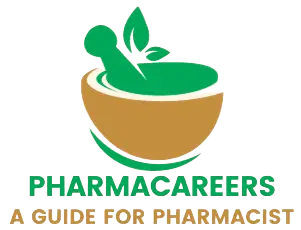Over 50 Popular Drugs Fail Quality Tests: A Wake-Up Call for the Pharmaceutical Industry
In a recent development that has sent shockwaves through the pharmaceutical industry, the Central Drug Standards Control Organisation (CDSCO) has flagged more than 50 widely-used medications as “Not of Standard Quality” (NSQ). This revelation has raised significant concerns about drug safety and efficacy, impacting both healthcare providers and patients who rely on these medications for various health conditions.

The Findings
The CDSCO’s latest monthly drug alert identified 53 drugs that failed to meet quality standards during random sampling conducted by state drug officers. These drugs include commonly prescribed medications for high blood pressure, diabetes, acid reflux, and even essential supplements like calcium and vitamin D3. Among the notable drugs that failed the quality tests are:
- Shelcal (Vitamin C and D3 tablets)
- Pan-D (an antacid)
- Paracetamol tablets (500 mg)
- Glimepiride (an anti-diabetic drug)
- Telmisartan (a high blood pressure medication)
These medications are produced by well-known pharmaceutical companies such as Hetero Drugs, Alkem Laboratories, Hindustan Antibiotics Limited (HAL), Karnataka Antibiotics & Pharmaceuticals Ltd, and Pure & Cure Healthcare, Reports India TV.
Here is the list: List of Drugs declared as spurious
Not of Standard quality: Not of standard quality
The Implications
The failure of these drugs to meet quality standards has far-reaching implications. For patients, it means potential health risks and ineffective treatment. For healthcare providers, it raises concerns about the reliability of the medications they prescribe. The pharmaceutical companies involved face reputational damage and potential financial losses.
The CDSCO has issued an alert, warning that these substandard drugs are still being sold in the market. This raises serious concerns about the potential impact on public health, as patients may unknowingly consume medications that do not meet safety and efficacy standards.
Industry Response
In response to the CDSCO’s findings, several pharmaceutical companies have denied responsibility, claiming that the flagged drugs are “spurious” and not manufactured by them. This has led to a call for more stringent regulatory oversight and better traceability in the drug supply chain to ensure that only genuine and high-quality medications reach consumers, Reports Times of India.
The Role of Regulatory Bodies
The CDSCO’s role in ensuring drug quality and safety is crucial. The organization conducts regular inspections and random sampling to identify substandard drugs. However, the recent findings highlight the need for more robust quality control measures and stricter enforcement of regulations.
Earlier in August, the Union Health Ministry had banned 156 fixed-dose combination (FDC) medicines, including widely used antibiotics, painkillers, and multivitamins, due to their associated health risks1. This move underscores the ongoing efforts by regulatory bodies to safeguard public health by removing potentially harmful drugs from the market.
The Way Forward
The pharmaceutical industry must take proactive steps to address the issues highlighted by the CDSCO’s findings. This includes:
- Enhanced Quality Control: Pharmaceutical companies need to invest in better quality control processes to ensure that their products meet the required standards. This includes regular testing and validation of raw materials and finished products.
- Improved Traceability: Implementing advanced traceability systems can help track the origin and movement of drugs throughout the supply chain. This can prevent the circulation of spurious drugs and ensure that only genuine products reach consumers.
- Regulatory Compliance: Companies must adhere to regulatory guidelines and cooperate with regulatory bodies during inspections and audits. This includes promptly addressing any quality issues identified and taking corrective actions.
- Consumer Awareness: Educating consumers about the importance of drug quality and how to identify genuine medications can help reduce the risk of consuming substandard drugs. This includes providing clear information on packaging and encouraging consumers to report any adverse effects.
Conclusion
The recent findings by the CDSCO serve as a wake-up call for the pharmaceutical industry. Ensuring drug quality and safety is paramount to protecting public health and maintaining trust in the healthcare system. By taking proactive measures and working closely with regulatory bodies, the industry can address the current challenges and prevent future occurrences of substandard drugs.
As consumers, it is essential to stay informed and vigilant about the medications we use. By doing so, we can contribute to a safer and more reliable healthcare system for everyone.
For more regular updates you can visit our social media accounts,
Instagram: Follow us
Facebook: Follow us
WhatsApp: Join us
Telegram: Join us







